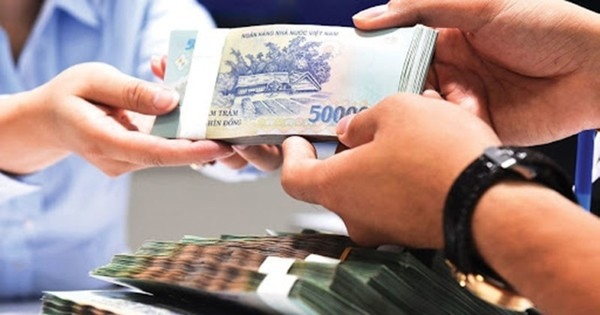Strict criterion prevents access to loans
Strict criterion prevents access to loans
Although Decree 31/2022/ND-CP of the State Government offers support to businesses, cooperatives, and business householders at 2% interest rate when borrowing from commercial banks, there is still a strict criterion in place. Decree 31 is a lifesaver for businesses and individuals to recover production back to normal, but the interest rate is not favorable for everyone.
Illustrative photo. |
Strict criterion
At the beginning of July, the State Bank of Vietnam said that up to now commercial banks have completed registration of interest rate support plans. The State Bank of Vietnam has summarized and proposed to the Ministry of Planning and Investment, and the Ministry of Finance, to report to competent authorities to additionally assign the public investment plan in 2022 to be at VND 16,035 bln and arrange for the public investment plan in 2023 to be at VND 23,965 bln. In addition, the State Bank of Vietnam also announced the interest rate support limit expected in 2022 to each commercial bank for future implementation.
Therefore, with the state budget allocation to support the interest rate of 2% per year it is estimated that banks will spend about VND 800,000 bln of outstanding loans this year to reduce interest rates for individuals and eligible businesses. In 2023, the loan balance is expected to be supported with interest rate valued at about VND 1,200,000 bln.
In order to access this support package, businesses must meet many conditions. First, they must fully meet with the normal loan conditions of commercial banks. Second, they must meet the conditions for signing a loan agreement and disbursing during the period from 1 January 2022 to 31 December 2023. Third, they must use the capital for the right purpose. Fourth, they must not receive interest rate support from the state budget as per set policies.
Commenting on these loan conditions, Mr. Phạm Huy Hùng, Vice Chairman of the Vietnam Small and Medium Enterprises Association, said that under this strict criterion, it is very difficult for businesses to access this interest rate support package. Small and medium-sized enterprises (SMEs) were and are the most vulnerable to the Covid-19 pandemic. Hence most businesses find it difficult to meet this criterion.
During the two years of the Covid-19 pandemic, many businesses had to either reduce or totally stop production, and with reduced production scale, many businesses could not avoid bad debts and had to apply for restructuring and changing of debt groups. One representative of a commercial bank said that with the strict criteria set forth by Decree 31, there are not many people who can access the 2% interest rate support loan package.
According to Mr. Nguyễn Hưng, General Director of TPBank, judging from the actual statistics of his bank, the number of customers who meet the requirements to enjoy the 2% interest rate support under Decree 31 is not large, because this number accounts for less than 10% of the total outstanding loans. Mr. Hưng said that they estimate the loan balance to be supported at about VND 2,000,000 bln. When divided by 1.5 years of implementation period on an average it will be about VND 1,300,000 bln in the interest rate support package disbursed from the state budget. But due to strict regulations, it will be difficult to spend all this support budget package, which means the goal will not be achieved.
Regarding the need for a loan to be clear of debt, Mr. Hưng said that the State Bank of Vietnam has issued Circulars 01 and 03 amending regulations on supporting customers whose businesses were affected by the Covid-19 pandemic. This means that these customers that have been restructured into debt groups are not eligible for this interest rate support. However, disbursements must be made by 1 August 2021. Therefore, this group of subjects will not be entitled to the 2% interest rate support package.
Technical barriers
When Decree 31 was issued, some commercial banks were cautious about the 2% interest rate support package because of fear of going into the same failed path prevalent a decade ago, which still haunts banks today. A representative of a commercial bank candidly shared in a conference for implementing Decree 31 held by the State Bank of Vietnam in early July that they fully supported the interest rate support package under Decree 31 of the Government but want to have a more specific mechanism and clearer instructions for its implementation.
This is a political task assigned but it is necessary to have a mechanism and a clear understanding to implement it so as to avoid doing it incorrectly. The interest rate support package for the period 2010 to 2011 has not been able to be settled so far and the bank has to accept it as a loss.
It can be seen that the reticence of commercial banks towards the interest subsidy package is not without foundation. Therefore, along with agreeing to implement the interest rate support package, some commercial banks proposed requirements for the State Bank of Vietnam to loosen the credit room.
In fact, opening a credit room and compensating interest rates are two different issues. Opening a credit room depends on the ability of each bank, while the interest rate support is the state budget to support banks so that they can lend to priority subjects. This is a remarkable new point of Decree 31 compared to the interest rate support policy in the period 2010 to 2011. Rather, Decree 31 is a combination of both fiscal and monetary policies to support businesses.
However, businesses are still concerned that some private banks may use technical barriers to stop businesses from borrowing, if they see that this support is not beneficial to them. Therefore, the application of this interest rate compensation depends on commercial banks. Commenting on this, Mr. Nguyễn Văn Thân, Chairman of the Vietnam Association of SMEs, said that in order for Decree 31 to be effectively implemented it must be checked and inspected regularly. Accordingly, the State Bank of Vietnam must assign targets for each commercial bank, then regularly inspect before the implementation process.






















